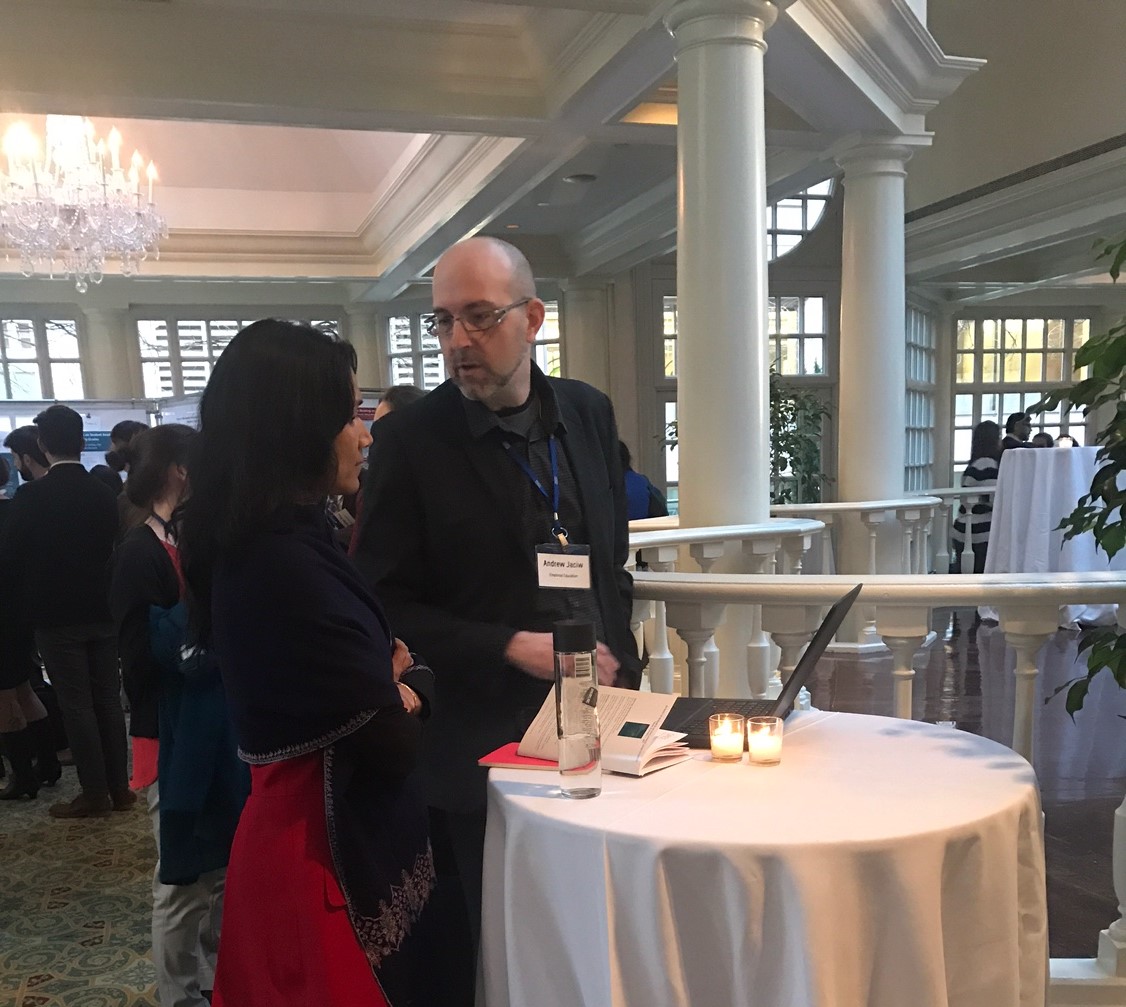SREE Spring 2017 Conference Recap

Several Empirical Education team members attended the annual SREE conference in Washington, DC from March 4th - 5th. This year’s conference theme, “Expanding the Toolkit: Maximizing Relevance, Effectiveness and Rigor in Education Research,” included a variety of sessions focused on partnerships between researchers and practitioners, classroom instruction, education policy, social and emotional learning, education and life cycle transitions, and research methods. Andrew Jaciw, Chief Scientist at Empirical Education, chaired a session about Advances in Quasi-Experimental Design. Jaciw also presented a poster on developing a “systems check” for efficacy studies under development. For more information on this diagnostic approach to evaluation, watch this Facebook Live video of Andrew’s discussion of the topic.
Other highlights of the conference included Sean Reardon’s keynote address highlighting uses of “big data” in creating context and generating hypotheses in education research. Based on data from the Stanford Education Data Archive (SEDA), Sean shared several striking patterns of variation in achievement and achievement gaps among districts across the country, as well as correlations between achievement gaps and socioeconomic status. Sean challenged the audience to consider how to expand this work and use this kind of “big data” to address critical questions about inequality in academic performance and education attainment. The day prior to the lecture, our CEO, Denis Newman, attended a workshop lead by Sean and colleagues (Workshop C) that provided a detailed overview of the SEDA data and how it can be used in education research. The psychometric work to generate equivalent scores for every district in the country, the basis for his findings, was impressive and we look forward to their solving the daunting problem of extending the database to encompass individual schools.
